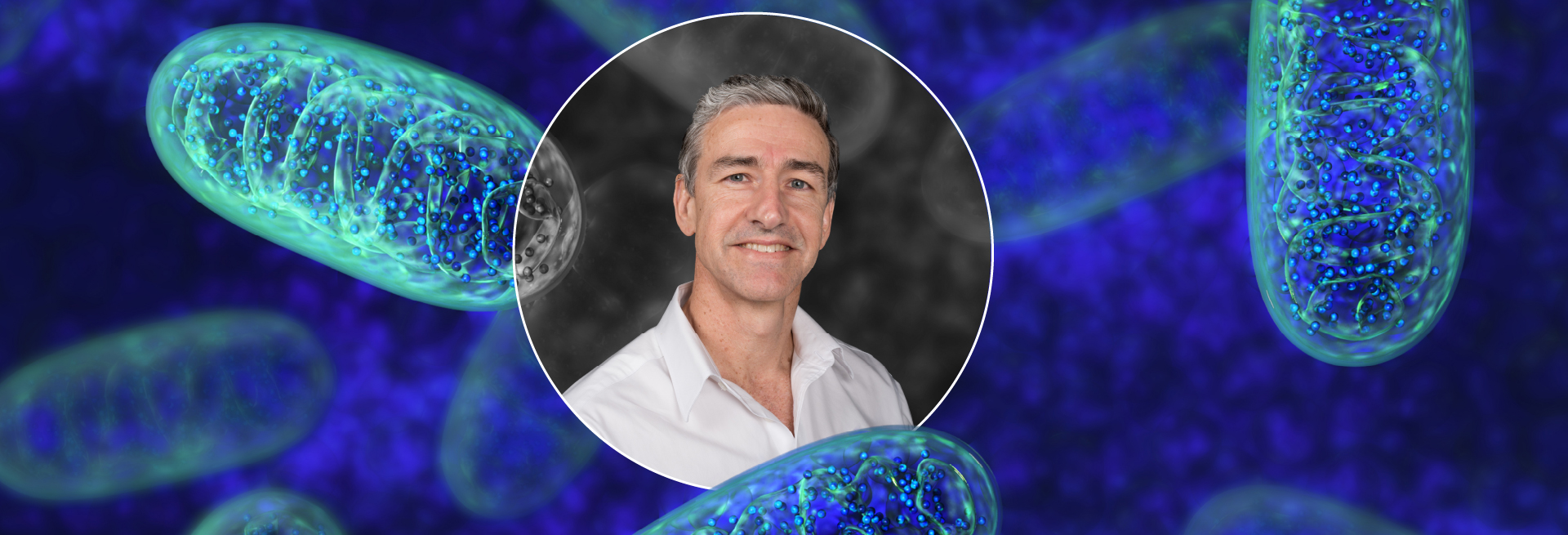Mitochondria are the energy factories inside cells. They’re critical to neuron function, helping neurons send signals throughout the body. For Gregory Macleod, Ph.D., understanding how mitochondria support neuron function is the key to uncovering mysteries surrounding neurodegenerative diseases.
Macleod, a professor in the Harriet L. Wilkes Honors College, and a member in the FAU Stiles-Nicholson Brain Institute, recently earned a $1.8 million award from the National Institutes of Health to study how mitochondria support neuron function. The ultimate goal of his research is to collect information that might be leveraged for therapeutic approaches to neurodegenerative diseases.
“We could say it’s the lack of energy in the cells that causes these diseases, but since mitochondria are such multi-faceted organelles, we don’t really know how they become involved,” said Macleod, who is also a member of the Institute for Human Health and Disease Intervention.
The lack of knowledge about mitochondria is where Macleod’s work begins, he said. “It’s basic research but it’s needed to build on our understanding of what is already known about mitochondria and neurons,” he said.
Working with Drosophila, a tiny fruit fly, Macleod examines genes and the effects of their mutations on mitochondrial movement inside neurons. Mitochondrial movement is critical to a neuron’s health, so when they cease movement, it disrupts neuron function leading to various disorders such as Lou Gehrig’s disease.
Macleod’s approach includes inserting or removing genes from the fly to determine which gene and which mutation is responsible for problems with mitochondrial movement, he said. A process, he said, is assisted by a dozen of his graduate and undergraduate students.
It’s basic research but its needed to build on our understanding of what is already known about mitochondria and neurons.
— Gregory Macleod, Ph.D.
“At the moment, we are examining 25 different genes because of their association with mitochondria and the plasma membrane, as we suspect that a number of them might be involved in arresting mitochondrial movement,” he said.
Through the Max Planck Florida Institute for Neuroscience, Macleod has access to cutting-edge expertise in electron microscopy. The microscopes use electrons to capture images of biological materials giving unparalleled resolution of neurons and their mitochondria.
“They’ve given us a lot of assistance, and if it wasn’t for their help collecting data, we wouldn’t have been successful at landing our recent grant,” Macleod said.
Max Planck is also one of the reasons Macleod says he came to FAU, eight years ago. Previously he’d been an assistant professor at the University of Texas Health Science Center in San Antonio, Texas. “I liked the idea of ready collaborations with researchers of this caliber,” he said.
